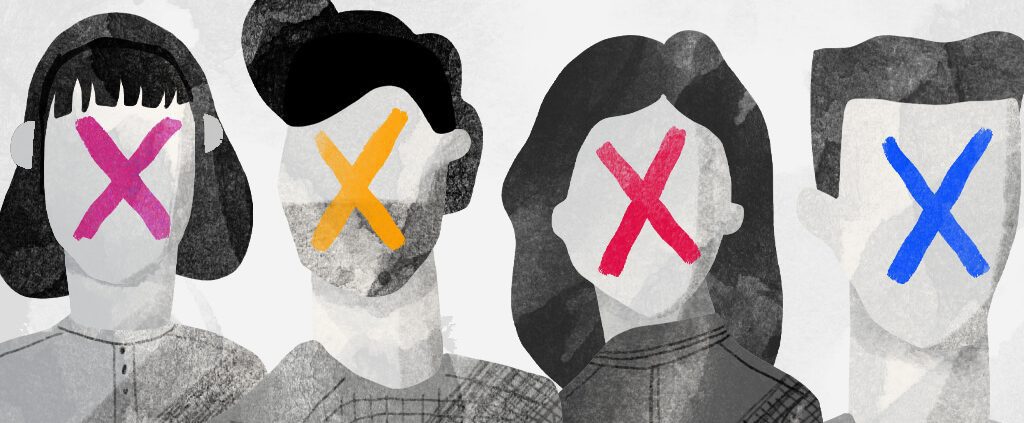We Need to Talk About Cancel Culture
Written by Con Campbell, Australia
Con Campbell is Senior Vice President of Global Content and Bible Teaching at Our Daily Bread Ministries. He’s an Australian New Testament scholar, author, speaker, and documentary presenter. Con enjoys playing jazz saxophone, lifting weights, and playing chess . . . though not normally at the same time.
So-called “cancel culture” has been growing among millennials and Gen-Z, especially on social media—and it’s a trend that worries me. Here’s why: Rather than engage in dialogue about differences of opinion, cancel culture cuts all relationship and bans any further communication. This can happen among family and friends, or can be directed toward celebrities, politicians, or corporations. As Jonah Engel Bromwich commented in the New York Times, the trend is like on-demand subscriptions of content, which a user can cancel just as easily as they subscribe.
But being cancelled can be very painful. It’s harsh. It’s judgmental. It’s merciless. It doesn’t listen to the other side of the story. It doesn’t tolerate differences of opinion. It rejects compromise. And worst of all, it doesn’t allow for reconciliation.
Anyone from Bill Gates to Kanye West can be cancelled, and sometimes only because they hold an unpopular opinion. If a celebrity says something politically incorrect, those offended try to silence them and smear their public image—all while forbidding the celebrity to learn and grow from their mistakes. Once they’ve been cancelled, they are not permitted to return to the public space (without fierce opposition). And that’s the appeal of cancel culture—it gives power to ordinary people over powerful celebrities, armed only with an Instagram account.
While cancel culture may be based on the noble intention of rejecting bad behavior, it is itself bad behavior. It’s a form of bullying. It’s a power play. It does not treat the cancelled person as a human being, but as an object that can be discarded. Since it doesn’t allow differences of opinion, and doesn’t allow the cancelled person to defend themselves—or even to apologize or make amends—cancel culture is the worst form of intolerance. It will not even hear another point of view, let alone listen and consider it.
As a Christian, I want to cancel cancel-culture—and I want to encourage you to do the same. It may be tempting to participate in cancel culture, especially when we find ourselves caught in conflict, or disagreeing with someone else. Sometimes it feels like the easier way out. Or, if we’re honest, it can be a way to punish someone in a self-righteous way.
But if we look into Scripture, we’ll see that cancel culture is the opposite of love, mercy, and respect. And cancel culture goes against God. This is because God treats us in the opposite way from cancel culture. Even if we shut the door on Him, God never shuts the door on us (Acts 17:27). If we want to come back to Him, He welcomes us (Luke 15:20). God reaches out to us even though we’ve treated Him badly (Romans 5:8).
Though Jesus had some pretty sharp disagreements with Pharisees and others (e.g., John 8:42–47), you can’t imagine him saying, “You’re cancelled. Don’t talk to me. Sorry, not sorry.” Jesus engaged his enemies. He answered those who opposed him. He may have disagreed with them, rebuked them, or criticized them, but he showed them the respect of engaging them. As followers of Jesus, let’s reject cancel culture, and respond to others as Christ did.
How can we go about doing so? We can glean some wisdom from the apostle Paul, who was realistic about the challenges of life with other people—he knew that we would experience friction, disagreements, and differences as we relate to one another. That’s why he said, “Be completely humble and gentle; be patient, bearing with one another in love” (Ephesians 4:2). If we’ve been offended, or hurt, or disrespected, it can be tempting to want to cancel that person. But cancelling is not the right option. Bearing with one another in love means that we try to work it out. It means we try to forgive. We might agree to disagree. And, if need be, we might take a break. But we shouldn’t cancel.
If you’ve been cancelled, you may experience a mix of hurt, anger, and disrespect, as I have. You can try to reach out to the person who’s cancelled you, even though that goes against their “rules.” Or you can wait it out in hope that reconciliation will become possible one day. When that day comes, I pray that you’ll respond with grace and forgiveness.











Leave a Reply
Want to join the discussion?Feel free to contribute!